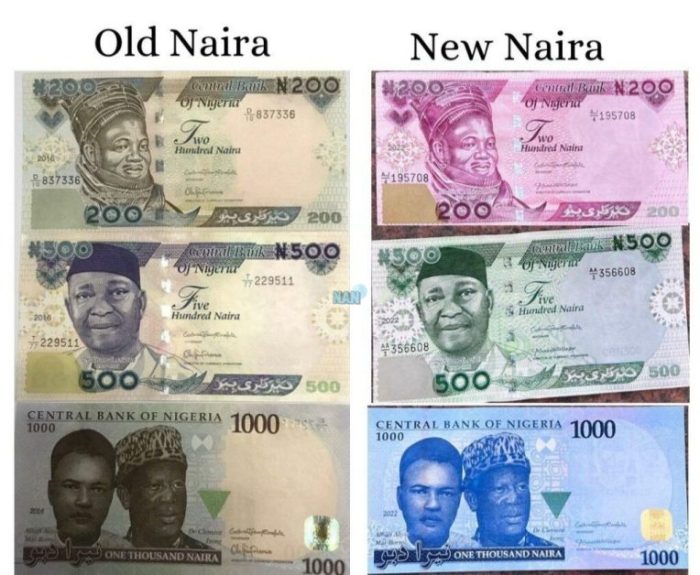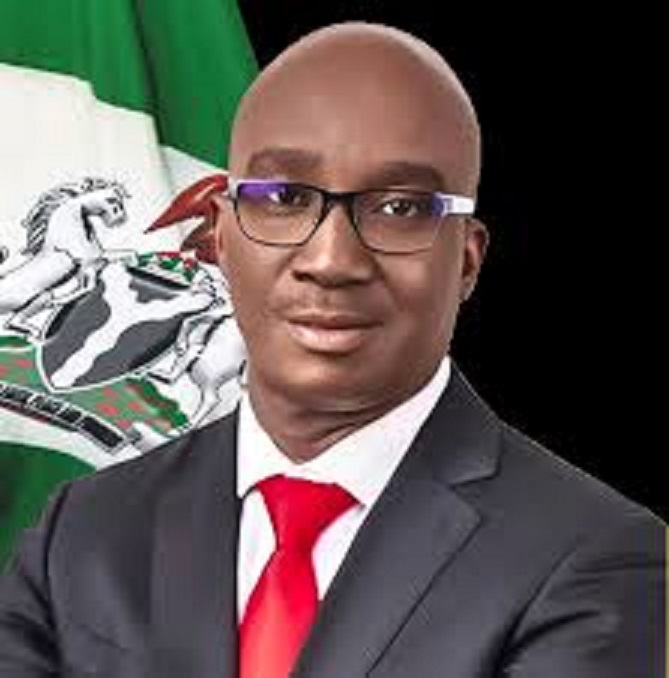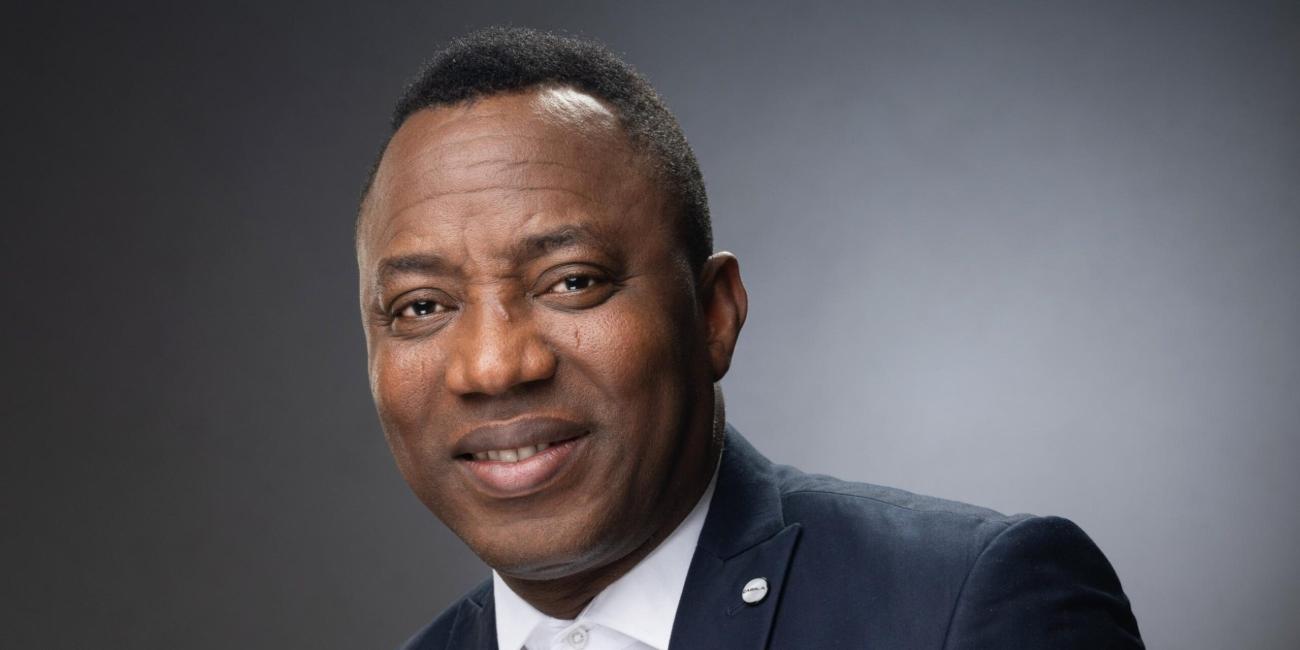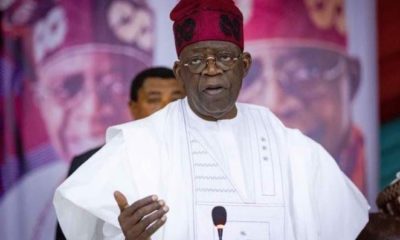Opinion/Feature
Fintech Companies Innovate Rapidly As Cashless Policy Deadline Closes In

In a bid to implement it’s cashless Policy, the Central Bank of Nigeria, changed the currency of the country which has led to scarcity of naira notes.
This has raised concerns among Nigerians, who are worried about the implications of the shortage as the old notes are set to cease to be legal tender by the end of 2023.
Biztellers spoke to a few Nigerians in Nyanya, Jikwoyi area of Abuja about their experiences with the new Naira notes so far.
A business owner said “I never see the new naira note again, na before wen money scarce I see d new naira note. Somedays sef I go sell and I no go see one new naira note. D money no dey at all”
Mr Paulinus a P. O. S operator said “it was only during the scarcity of naira notes I saw the new note but since they accepted both the old naira and the new naira, it’s only the old naira note have been withdrawing inside the bank and ATM”
Another POS operator said ” Since they accepted both the old and new naira note, the new naira note has not been in circulation ”
A Lawyer, Mr Daniel said “I have been unable to withdraw the new naira notes, but when the naira note was scarce at its peak, I pay like 1500 naira to withdraw 5000 naira but so far the price has reduce. Have not gone to the bank to withdraw but the few times have withdraw from POS, it’s been the old naira note. The new naira note has really not been in circulation.
“If December 31st is going to stand as the deadline for the old note to be legal tender, federal government should ensure the circulation of the new naira note. I think the new administration need to review the CBN policy or increase the deadline” He added.
Blessing a worker said “there have been few new naira notes so far and whenever I go to withdraw from POS and ATM, it dispenses old note. I only received the new naira note when I go to buy something and they give me the new note as change”
Another POS operator and also a business man said “d new note no just dey at all, since morning na only one person don use d new money con buy something 4 my hand. And for bank na old note dem dey give people”
If the shortage persists, it could lead to cash crunch in January 2024 when the old notes cease to be legal tender which could lead to another phase of chaos, protest and destruction of lives and properties as seen during the presidential and Governorship election.
Nigerian fintech companies have however, been taking innovative steps to promote digital payments in the country.
Global fintech brand, Unlimint, is set to launch its operations in the country. The company has received its Payment Solution Service Provider (PSSP) License from the Central Bank of Nigeria, authorizing it to operate as a recognized payment service provider in the country.
Unlimint’s entry into the Nigerian market could be a significant development for local businesses, as the company is expected to provide a wide range of payment services and methods that will help them expand their reach to a local and global audience.
Also, Touch and Pay Technologies (TAP), a fintech company in Nigeria has developed a state-of-the-art ticketing and booking system for interstate travel in Nigeria.
The system enables passengers to make digital payments for their trips, eliminating the need for cash transactions. This move towards digital payments is expected to improve service delivery and promote environmental sustainability.
TAP, in partnership with the Lagos state Ministry of Transportation, will accredit and vet all inter-city bus parks in the state, providing a unified system for regulating transportation routes, schedules, capacities, and prices.
The deployment of TAP’s digital payment solution and partnership with the Lagos state government exemplifies the potential for fintech companies to promote the government’s cashless policy and drive the adoption of digital payments in Nigeria.
Implementing a cashless policy in the country will not be an easy task looking at the high rate of illiteracy especially in the northern part of Nigeria and the unavailability of banks and network in some region of the country.
The Federal Government need not force or rush the implementing on the citizens but rather provide adequate facilities to ensure its smooth implementation. This cannot be put in place in space of months but rather it will take years to ensure a successful cashless policy.
Opinion/Feature
Why Edo PDP Is On Life Support, Gasping For Relevance

Fred Itua
The Edo State Chapter of the Peoples Democratic Party (PDP) has become the political equivalent of a broken-down car, abandoned by its driver after years of reckless driving. It is a shadow of its former self—a factionalized, internally battered, and directionless entity that, instead of seeking redemption, has resorted to aimless wailing against a government that is steadily gaining the trust of the people.
Much like a drowning man flailing in the waters of irrelevance, the PDP is desperately grasping at anything that gives the illusion of political survival. Their latest antics, rather than winning them public sympathy, only reinforce the obvious: Edo PDP is in the Intensive Care Unit (ICU), gasping for air, and rather than battling for survival, they are wasting their dwindling oxygen on unproductive tantrums.
The PDP is not just a sick party on life support—it is a party suffering from terminal political irrelevance. The faction-ridden, scandal-infested remnants of what was once a ruling party has now been reduced to a collection of desperate voices clinging to lies, propaganda, and outright misinformation in a last-ditch effort to remain in public discourse.
It is ironic that the same party that spent the last eight years squandering the State’s resources and alienating its own members now claims to be the voice of reason. The same party that crushed its foundational members—the Legacy PDP—under the weight of impunity and godfatherism is now pretending to be champions of the people. Their newfound role as self-appointed critics of Governor Monday Okpebholo is not driven by patriotism or concern for Edo’s progress; it is nothing more than the desperate growl of a wounded lion that has lost its territory.
Former Governor Godwin Obaseki and his co-travellers were the architects of PDP’s downfall. They ran the party into the ground with their arrogance, side-lining loyal members, imposing candidates, and rewarding opportunists who saw governance as a personal business empire. Now that they have been rejected at the polls and abandoned by the people, their remaining foot soldiers—men like Ogbeide Faluyi Isibor and Chris Nehikhare—have adopted an attack-dog strategy, barking at every single move of the Okpebholo-led Government.
A glaring example of this political misadventure is Chris Nehikhare, a man whose legacy is tainted with corruption, deceit, and an unquenchable thirst for misleading the public. This is the same man who openly admitted to purchasing a government-owned Prado SUV worth N200 million for a laughable N750,000—daylight robbery that epitomizes the reckless looting culture of the PDP era. And yet, with a straight face, he wants to lecture the good people of Edo on accountability and governance. The irony is staggering.
Take, for example, their fabricated outrage over recent security incidents in Ovia and Okpekpe. While the Okpebholo administration swiftly mobilized security forces and initiated immediate responses to curb the threats, PDP shamelessly tried to spin the situation to cover up their own failures. Under their disastrous leadership, Edo’s security architecture collapsed, leaving citizens at the mercy of criminals. Yet, here they are, pretending to care about security only because it offers them another excuse to criticize.
The difference is clear: PDP ignored insecurity for eight years, while Governor Okpebholo has already taken decisive actions, equipping security agencies and restructuring the Edo Security Network. That is the kind of leadership Edo people recognize and respect—not empty rhetoric from disgruntled PDP loyalists who have lost their political feeding bottle.
The PDP’s obsession with baseless accusations extends to their laughable claim that the Okpebholo administration is “inducing” members of the Edo State House of Assembly with ₦200 million each to defect to the APC. This is not only a falsehood; it is a tragic reflection of PDP’s own corrupt mind-set. In their time, they could only buy loyalty with cash because they lacked any real governance achievements to inspire followership. But today, APC is the new bride in Edo, not because of bribery, but because of the people-centred leadership of Governor Okpebholo.
Take Hon. Sunday Ojiezele Ikpenomen, for example. This was a staunch PDP lawmaker who willingly defected to the APC—not because of money, but because he saw the unprecedented developmental strides of the new administration. PDP should stop assuming that every politician shares their old-fashioned, corruption-ridden mentality. Instead, they should focus on fixing their own internal disaster before pointing fingers at a government that is already delivering results.
But here’s the part that baffles the people of Edo: how does a party that wasted eight years of golden opportunity suddenly find the moral audacity to question a government that is barely a few months old?
Governor Monday Okpebholo is not a man of empty words and flamboyant speeches—he is a leader of action. He does not waste time on grandiose promises; instead, he gets to work on real, practical governance. One of his first major projects—the construction of the Rahmat Park Flyover—was welcomed by Edo residents as a long-overdue development. But, as expected, PDP, in its usual tone-deafness, raised a needless alarm, questioning the necessity of the project. The irony is not lost on anyone: this is the same party that promised industrial hubs and economic rejuvenation, only to leave behind white elephant projects that served no real purpose other than enriching a few consultants.
Perhaps the PDP should take a moment to reflect on its own failures before attacking the new government. What became of all the so-called innovation hubs that Obaseki loudly inaugurated? Where are the jobs he promised Edo youths? What happened to the billions allocated for infrastructure that never materialized? Instead of addressing their abysmal record, PDP’s remnants prefer to sit on the side-lines and scream at a government that is busy fixing their mess.
Their latest tactic—flooding the media space with baseless allegations—only proves one thing: they are still reeling from their disgraceful electoral defeat. Having failed to produce any credible argument at the Edo State Election Petition Tribunal, their last resort is to cry foul at every policy of the Okpebholo administration.
But here’s where they miss the point: Edo people are not fooled. They have seen the difference between rhetoric and practical governance. They are witnessing first-hand the commitment of a government that listens, engages, and acts. While PDP’s new poster boys are busy playing opposition for the sake of opposition, Governor Okpebholo is rolling up his sleeves and delivering results.
Governor Monday Okpebholo is not just leading a government; he is leading a rescue mission to recover Edo from the abyss PDP pushed it into. Under PDP, Edo was seen as a State trapped in the hands of political Pharaohs, suffocating under bad governance. But Edo people have now declared they will never go back to Egypt. They have rejected the PDP’s culture of deceit, corruption, and stagnation.
No amount of lies, misinformation, or media outbursts will change the reality: the PDP is politically dead in Edo State. If Chris Nehikhare and his cohorts are so desperate to stay relevant, they should consider writing fiction novels instead of embarrassing themselves with propaganda that even their own party members do not believe.
Make no mistake, Governor Okpebholo welcomes criticism. He has openly stated that even the newly revitalized Edo Broadcasting Service (EBS) should not hesitate to call him out where necessary. But criticism should be based on facts and logic, not bitterness and political frustration. The PDP’s rants are not about governance; they are about wounded egos and lost political privileges.
Edo people have moved on. The future is in the hands of a leadership that prioritizes practical development over political games. The PDP, if it still hopes to be relevant, should abandon its ICU-induced rants and start doing the hard work of genuine opposition—one that offers constructive alternatives rather than desperate, uncoordinated attacks.
Until then, their cries will remain what they are: the last gasps of a party in political coma, struggling to find its place in a State that has outgrown its failures.
Itua, the Chief Press Secretary to the Edo State Governor, wrote from Benin City
Opinion/Feature
Okpebholo’s Unshaken Drive To Recover Edo’s Stolen Assets

By Fred Itua
Wednesday, February 5th, 2025, could best be described as a day of gloom in Edo State, and indeed, our country, Nigeria! It turned out a black Wednesday as mind blogging, heart rending, and unbelievable revelations were brought to light.
Gloomy enough to declare for a state wide mourning, with all residents dressed in sack-cloths, covered in ashes as they mourned the depth of plundering, mind-bogging looting, heartless shady deals, lack of transparency and institutionalisation of corruption by the Godwin Obaseki led administration.
While many often taunted the immediate past administration of Obaseki as an MoU government, known only for rhetorics and no action, not many (if any) would have envisaged or imagined the level of fraud and corruption that took place under his watch as governor of Edo State.
READ ALSO: Adeleke Engages 10,000 Youths For Imole Youth Corps
Submitting its findings contained in 3,900 pages to the incumbent Governor of Edo State, Senator Monday Okpebholo, the Edo State Assets Verification Committee, a body set up on the 26th November, 2024 to assess government’s assets and liabilities, unveiled a can of worms and shady dealings perpetrated by former Gov Obaseki and his cronies that would make any conscientious citizens cringe in holy indignation.
From the reports, one thing became glaring and obvious – Obaseki ran Edo State like a mafia, and his mission resonates with the first part of John 10:10; “to steal, to kill and to destroy”, and that, he did.
Like a ravaging demon, he embarked on a plundering spree, and today, the state bleeds from his satanic kind of looting.
With over 900% increase in the official debt profile of the state (from N84b in November, 2016 to N682b in November, 2024), Obaseki, a self-proclaimed financial expert and economist, made rubbish of his profession with his clear lack of financial discipline, and outrageous financial dealings.
What is even more outrageous and annoying, is the fact that, these monies were borrowed only to be redirected into the pockets of his friends and allies in the name of consultancy, shady deals and inflated projects whose procurement processes were shrouded in secrecy.
His personal company, Afriinvest, and that of his godson, Asue Ighodalo, played prominent roles in this demonic order.
In an unprecedented and very worrisome manner, State funds were used to build structures and infrastructure and handed over to private individuals/companies with no record of financial commitments.
For example, after committing N19b of Edo State taxpayers money in constructing Radisson Hotel, Obaseki’s administration ceded away 80% of the ownership to Tribury House Ltd, a private company registered in 2024 with no single financial commitment to the project.
Within December 2022 and July 2025, Obaseki’s government paid N967 million as consultancy fees to Tanit Engineering to supervise work at the Stella Obasanjo Hospital. Yes, you heard right! N967 million not for the project itself or to purchase equipment but just to supervise work at the hospital. Even more chilling is the revelation that the procurement process in this bid was restricted to only one company – Tanit Engineering…. Who owes Tanit Engineering?
EdoBEST program, which many have now nicknamed, “EdoSCAM” was not spared in this looting spree, as the heartless, looting “general” disguised as an investment banker and technocrat serially raped the state educational sector blind, while gloating in self-deceit as he continually reeled out superfluous claims to the general public. Like one drunk in his own deception and foolishness, Obaseki embezzled the funds meant for EdoBEST, while our children and teachers suffered in harsh learning conditions.
The chilling discovery that Obaseki only remitted $5m out of the $75m released by the World Bank for basic education reforms and renovation of schools to SUBEB is not only nauseating but outright wickedness. Withholding a whopping 93% of funds meant for Edo pupils and students, Obaseki demonstrated an unusual high level of lack of empathy for the Edo child.
It is disheartening that the same man that swore on oath to protect the vulnerable Edo child stole and took that which belonged to the same child.
Time and space would fail me to talk about the many atrocities of the Obaseki-led administration as revealed in the 3,900-page committee’s report.
Is it the dirty racketeering at the demolished iconic Central Hospital valued at N5b, which now houses a private museum whose ownership is shrouded in secrecy despite Edo State Government providing all the funding? Or the road contracts in which kilometers of roads were inflated and contractors paid huge sum of money, negating the procurement laws of the state?
Three months after leaving office, the Edo State Civil servants still develop goosebumps at the mention of the name, “Obaseki”! Using a consultancy firm, Greenfield to run their duties, the civil service was made redundant as “consultants” with no proven track record or work experience, had a field day, running the service as they deem fit. The result of which saw the grounding of the Nigerian Observer, Edo Broadcasting Service, Edo line, and many others.
The circle of corruption continues unabated in Nigeria because there are no consequences for people’s actions and inactions. Many times, those who have taken advantage of their leadership position to steal and abuse offices are given a pat on the back and asked to steal no more. Those who dare to call them out are asked to focus on their own and let bygones be bygones.
In this regard, Edo people sincerely are glad that Governor Monday Okpebholo had the courage and guts to order a probe into the dealings of his predecessor. It is the way to go if sanity must be restored in our public offices. These findings (the report of the asset committee) should be made public so the average Edo citizen sees the extent to which Obaseki raped and defrauded them.
Also, the relevant authorities must step in and carry out a thorough investigation and prosecution. Gone are the days when committee reports are seen merely as academic exercise. This one must and will be different.
Obaseki must unveil the identity of these shady companies he used as cronies, and the balance of $70 million World Bank funds meant for Edo schools must be released. With the volume of revelations contained in the committee’s report, we might just have in our hands a level of looting that would make the notorious Abacha’s looting appear a child’s play.
Obaseki has bitten too much! He has eaten sour grapes, and his teeth must be set on edge. Never again should our children and generations yet unborn suffer because of the uncanny greed and heartlessness of any man.
Itua, the Chief Press Secretary to Edo State Governor, wrote from Benin City, Edo State
Opinion/Feature
Sowore, Egbetokun: Differentiating Between the Law, Emotions, and Cheap Populism

By Olalekan Johnson
In recent times, Omoyele Sowore, the publisher of Sahara Reporters and a former presidential candidate of the African Action Congress (AAC), has been embroiled in a series of unprovoked attacks against the Inspector General of Police (IGP), Kayode Egbetokun.
These attacks have culminated in Sowore’s recent arraignment in court, rightfully raising concerns about his conduct and the potential consequences for both the individual and the larger society.
Sowore has long built his career on harassing, defaming, and undermining the Nigeria Police Force, particularly its leadership. This is not a mere coincidence or an isolated incident, but a pattern of behavior that dates back years.
One of the more recent episodes that illustrate this pattern was when Sowore posted a self-indicting video of himself resisting and obstructing police officers who were merely doing their job in Lagos. This act, alongside others like it, reflects Sowore’s repeated disobedience to lawful orders, cyberstalking, incitement against the police, and, specifically, attacks against the office of the Inspector General of Police.
ALSO READ: BREAKING: NPF Tackles Sowore On Egbetokun’s Tenure
What many fail to realize is that Sowore’s attacks are not just random provocations. They are part of a calculated effort to destabilize the country. His relentless criticism of IGP Egbetokun, who has consistently demonstrated professionalism and adherence to the law, speaks to a larger agenda aimed at creating chaos and eroding the authority of the police force. This is no longer just a case of ideological disagreement, it is a deliberate effort to sow discord and division.
Sowore has long thrived on controversy and has found a niche for himself in the realm of baseless activism, cheap populism, and political blackmail. His actions have always been driven by opportunism, with little regard for the long-term stability of the country. Under the guise of advocating for democracy, Sowore has become synonymous with inciting violence, misleading the public, and promoting himself as a hero of the masses, despite his true motives being rooted in self-interest and a thirst for attention.
While Sowore may have managed to amass a following of blind supporters, it is critical for patriotic citizens to recognize the dangers in his rhetoric. His consistent pattern of false accusations, cyberbullying, and incitement is not just a threat to the Nigeria Police Force, but to the very fabric of society itself. His actions are a direct affront to the rule of law, and should be condemned by anyone who values peace, democracy, and justice.
It is commendable, then, that IGP Egbetokun, despite facing incessant attacks, has opted to pursue legal action against Sowore rather than resorting to violence or intimidation. This response is a testament to the maturity, professionalism, and respect for the rule of law that Egbetokun has consistently displayed in his tenure as the head of the Nigeria Police Force. Under his leadership, the police have shown a firm commitment to upholding justice and ensuring that no one, regardless of their status or influence, is above the law.
Sowore’s behavior illustrates a deep misunderstanding of the purpose of activism. Activism, at its core, should be based on facts, sincerity, and a genuine desire to improve the conditions of the common man. Unfortunately, Sowore has distorted the concept of activism into a tool for personal vendettas, cheap sensationalism, and blackmail journalism. By portraying himself as a champion of the people, he has deceived his followers into believing that he is fighting for justice, when in reality, his actions are self-serving and harmful to the stability of the nation.
Source: Verified handle of the NPF on X























